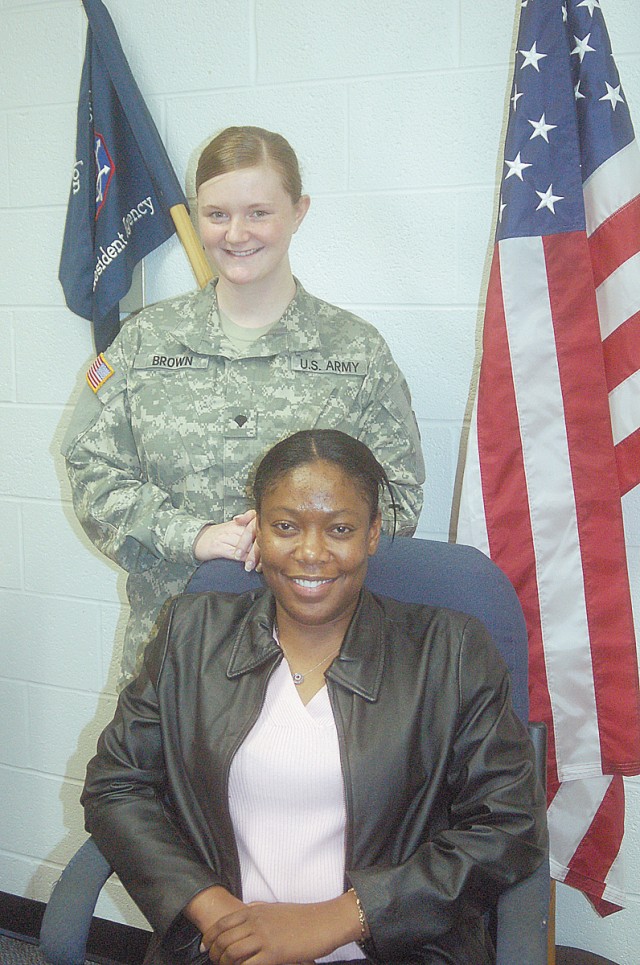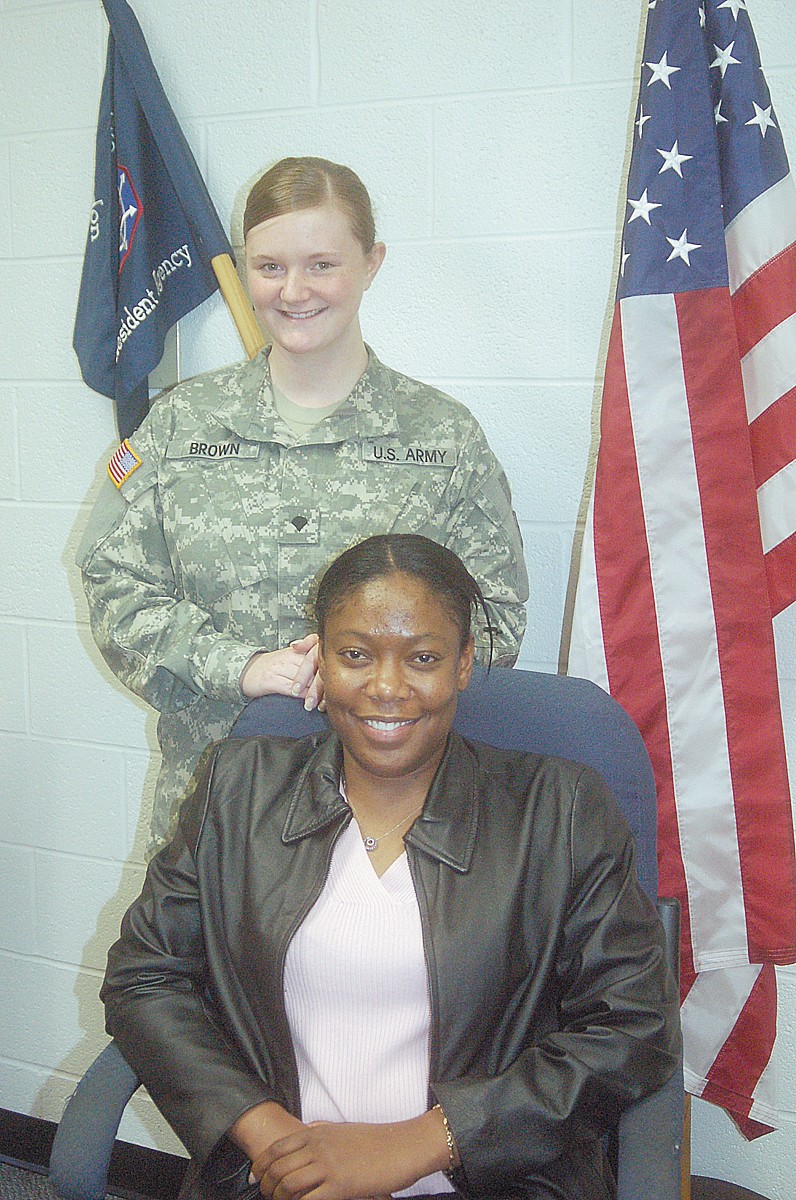FORT GORDON, Ga.--(April 6, 2009) When her biological Family was unable to come to her aid during a crisis, Sgt. 1st Class Tanya Colomathi turned to her Army Family and found a sister in arms.
"I'm happy that I have her. I'm a little bit concerned. I don't want things to go bad for her, but I couldn't have asked for a better person," said Colomathi, an investigator with Fort Gordon's Criminal Investigation Division, who will be headed to Walter Reed Army Medical Center to receive one of Spc. Rebecca Brown's kidneys next week. Brown is a military policeman at Fort Gordon.
Colomathi, 32, discovered a health problem about two years ago when she was readying for warrant officer school and taking a routine physical fitness test. The test left Colomathi a little dizzy and her blood pressure was higher than it should have been.
It was unusual for her to react that way, she said.
A few weeks later, Colomathi noticed she was feeling more tired and run-down plus there some unusual swelling.
"One morning, I woke up, and my face was puffy," she said. That was a Sunday. On Tuesday, she went to the doctor.
"On Wednesday, I had 17 missed calls," she said.
Doctors diagnosed Colomathi with lupus nephritis. Her kidneys were failing, and her dreams of warrant officer school were now on-hold.
Colomathi has been undergoing dialysis three times a week. She does the dialysis in the evenings so it doesn't interfere with her Army career.
"I've fought to stay active-duty," said Colomathi, who was classified with 100 percent disability and could have medically retired. "I love my job. "There's not another job I would do. I've never thought what I'd do other than the Army."
For most of the past two years, Colomathi has been seeking a donor. Her mother has high-blood pressure which precluded her from being a candidate. Her siblings declined to be donors.
Colomathi is a single mom. She has a son, Kristopher, who is a student at Lakeside Middle School.
Other military service members were tested for blood type and tissue typing. Surgery was scheduled about a year ago with another possible donor, but Colomathi was told at the last minute, the donor wasn't the best possible match.
Brown, 22, has been a friend of Colomathi's for about 15 months.
People in the office jokingly call Colomathi "Big Becky" and Brown "Little Tanya."
Knowing that her friend needed her was all it took for Brown to begin the intensive physical and mental testing.
"If you can help someone, you should," said Brown of her philosophy of life.
Even though the two are not blood relatives, Brown came up as a match for Colomathi.
Brown said she knows there are risks involved, but doctors have told her she should live a normal life after the surgery. She has a 60 day convalescence after the surgery. She will be in the hospital about 4 to 5 days then should return to Fort Gordon about 10 days after the surgery.
The two women don't know if they will be hospital roommates, but they said they hope to be.
Colomathi will remain on anti-rejection drugs the rest of her life, and as long as she stays on active duty, she will have to be assigned to a base with a nephrologist. She said the lupus has been stabilized and shouldn't cause the new kidney to fail.
Colomathi plans to make the Army her career. As for Brown, she plans to continue a life helping others. Once her military commitment is fulfilled, she will be going to school.
"I want to be a teacher," she said.


Social Sharing